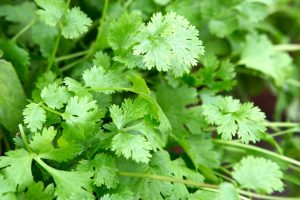An outbreak of Shigella in England in 2018 was most likely caused by coriander that was contaminated, according to researchers from the journal Epidemiology and Infection.
Food Safety Magazine reports that in April 2018, Public Health England was informed of cases of Shigella sonnei, of people who had eaten food from three different catering outlets. Initially, the outbreaks were investigated separately, but whole-genome sequencing (WGS) showed that they were caused by the same strain.
Epidemiological data was analyzed, as well as the food chain and microbiological examination of food samples. WGS was used to determine the phylogenetic relatedness and antimicrobial resistance profile of the outbreak strain.
Thirty-three cases were linked to the outbreak, and the majority of people involved had eaten food from seven outlets specializing in Indian or Middle Eastern cuisine. Five outlets were linked to two or more cases, all of which used fresh coriander, although a shared supplier was not able to be identified. An investigation at one of the outlets found that 86 percent of cases reported eating dishes with coriander, either as an ingredient or a garnish. Four cases were admitted to the hospital, and one had evidence of treatment failure with ciprofloxacin.
Phylogenetic analysis proved that the outbreak was part of a wider, multidrug-resistant group of organisms, associated with travel to Pakistan. Likely contributing factors were poor hygiene practices during cultivation, distribution, or preparation of fresh produce.

